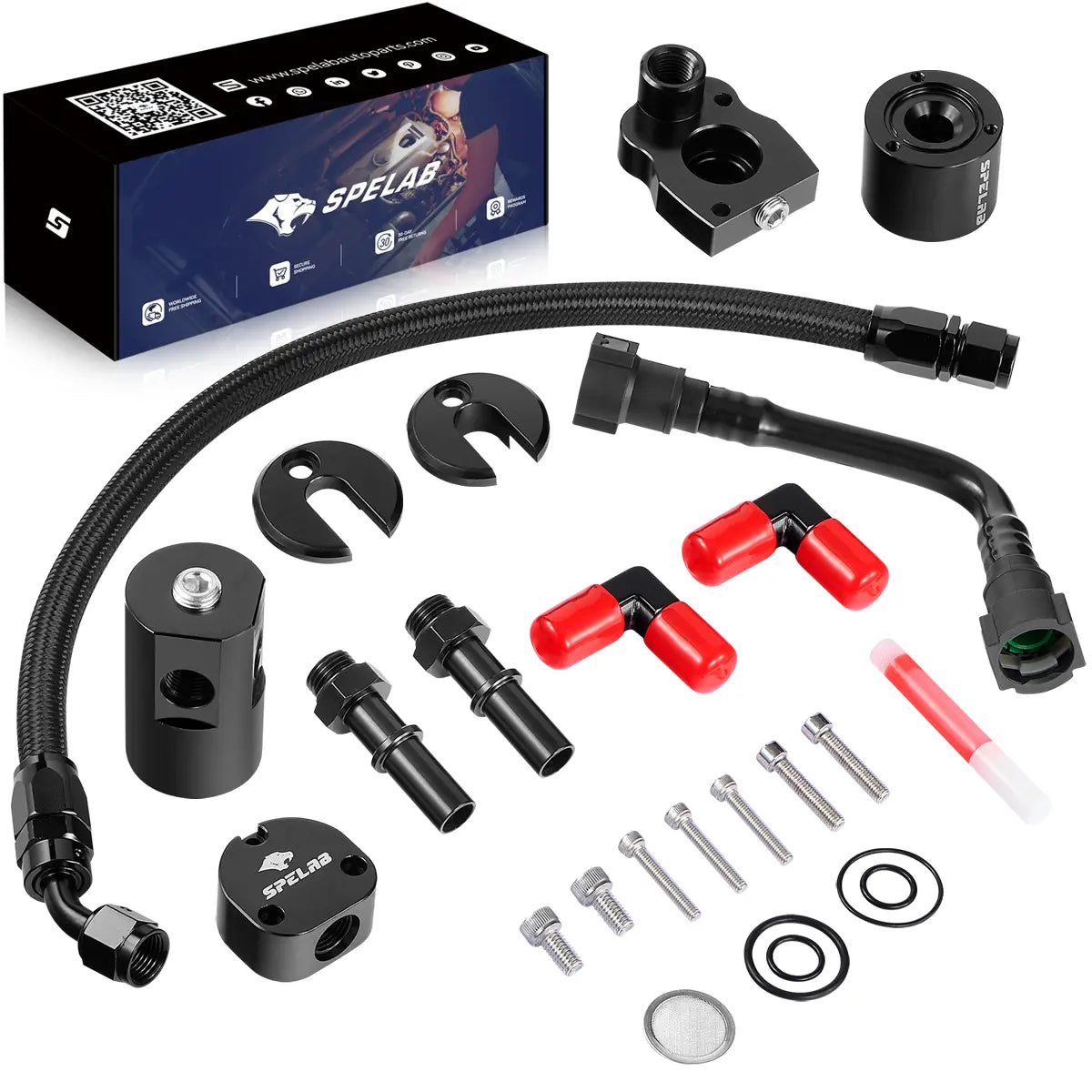Codenamed the Scorpion during its developmental stage, the cp4 pump 6.7 powerstroke is Ford's in-house built diesel engine for the Ford Super Duty.
Ford chose to design, engineer, and produce its own diesel engine to maintain profitability and a competitive edge in the growing diesel segment. This is the first Power Stroke not manufactured by long time partner, International Navistar. The absence of a partner seems to have given Ford an advantage over competitors, granting them the freedom to design an engine that fits their specific needs and the needs of their customers.

The Success of Ford 6.7L Power Stroke Engine
Fortunately, Ford seems to have hit a home run with the 6.7L, which impresses in the departments of performance, fuel economy, reliability, and as we're slowly finding out, longevity. Over 500,000 6.7L Power Strokes were sold in the engine's first three years of production.
The "six-seven" has proven itself to be a good engine in the near-decade it has been around. There are three generations of the powerplant: 2011-2014 (First), 2015-2019 (Second), and the Third-gen torque monster (1,050 lb-ft) found in 2020-2021 F-Series trucks.
The Bosch CP4.2 Failure
Through the years, we've found that first-gen Ford 6.7L diesels are the most problematic, and today we'll talk about the CP4.2 high-pressure fuel pump.
The cp4 pump high-pressure fuel pump at the heart of the common-rail system has a design flaw—and it's a shortcoming that can cause the pump to self-destruct. The Bosch CP4.2, is known for breaking down due to metal-on-metal contact that is promoted by air inside the pump.
The contamination can completely destroy the fuel system (injectors, pressure regulators, lines, etc.) and take the fuel rails and injectors out with it. People have no choice but replace the CP4.2 pump altogether, which are very expensive repairs.

What You Can Do to Help Prevent a CP4.2 Failure
SPELAB CP4.2 Bypass Kit can't stop the CP4.2 from failing, but it reroutes fuel flow leaving the pump so that—in the event of a failure—you're not buying fuel rails, lines, and an expensive set of piezo injectors on top of replacing the CP4.2.
The CP4 pump is internally lubricated by diesel fuel from the tank. After lubricating the crankcase area of the CP4 pump, fuel enters the high pressure pumping chambers and exits under pressure to the fuel rails and fuel injectors. The weakness of the CP4 pump lies in the crankcase area where a set of roller lifters ride on a camshaft. When the failure event occurs the lubricating fuel becomes contaminated immediately.
Our bypass kit mounts to the CP4 pump and changes the routing of the fuel flow so that lubricating fuel from the crankcase is directed back to the fuel tank to be filtered before going through the fuel system again. Thus all fuel entering the pumping elements of the CP4 pump and leaving for the injectors is always routed through both of the vehicle's fuel filters to eliminate any change of contamination from a high pressure pump failure.

$399.99
Buy NowThis one-time investment could easily save you over $9,000 in repairs and weeks of downtime. It is an absolute must for any 6.7L Power Stroke owner!

Proper maintenance goes a long way, too. This is especially true on all modern-day common-rail diesel engines. Regular fuel filter changes (every other oil change is good practice) and fully priming the fuel system prior to starting the engine after those filter changes is the best way to guard against air infiltrating the high-pressure system. Note that all 6.7L Fords are equipped with a frame-mounted primary filter as well as a secondary filter located up on the engine.
As for ensuring that only quality, clean fuel makes it into your tank, fill up at high-traffic filling stations that are regularly being resupplied with fresh diesel.
FAQs
Q1: What is the Bosch CP4.2 high-pressure fuel pump?
A1: The Bosch CP4.2 is a high-pressure fuel pump used in Ford 6.7L Power Stroke engines, known for its efficiency but prone to failure.
Q2: Why is the CP4.2 pump prone to failure?
A2: The CP4.2 pump is prone to failure due to metal-on-metal contact, leading to metal shavings contaminating the fuel system.
Q3: What are the common symptoms of a failing CP4.2 pump?
A3: Common symptoms include engine misfires, loss of power, rough idling, and metallic debris in the fuel filter.
Q4: How much does it cost to repair a failed CP4.2 pump?
A4: Repairing a failed CP4.2 pump can cost several thousand dollars, including parts and labor.
Q5: How can I prevent CP4.2 pump failures?
A5: Prevent failures by using high-quality fuel, regular maintenance, and installing a bypass kit to filter out contaminants.
Q6: What is the SPELAB CP4.2 Bypass Kit?
A6: The SPELAB CP4.2 Bypass Kit is a solution that reroutes fuel to prevent contamination and protect the fuel system from pump failure.
Q7: How does the CP4.2 Bypass Kit work?
A7: The bypass kit filters out metal debris before it can contaminate the fuel system, preventing damage to injectors and fuel rails.
Q8: Is the CP4.2 Bypass Kit easy to install?
A8: Yes, the CP4.2 Bypass Kit is designed for easy installation without major modifications to the vehicle.
Q9: Will installing the CP4.2 Bypass Kit void my warranty?
A9: It's best to check with your manufacturer, but the bypass kit is generally designed to be non-invasive and should not void your warranty.
Q10: How often should I replace the filter in the CP4.2 Bypass Kit?
A10: The filter should be checked and replaced according to the manufacturer's recommendations, typically during regular maintenance intervals.






